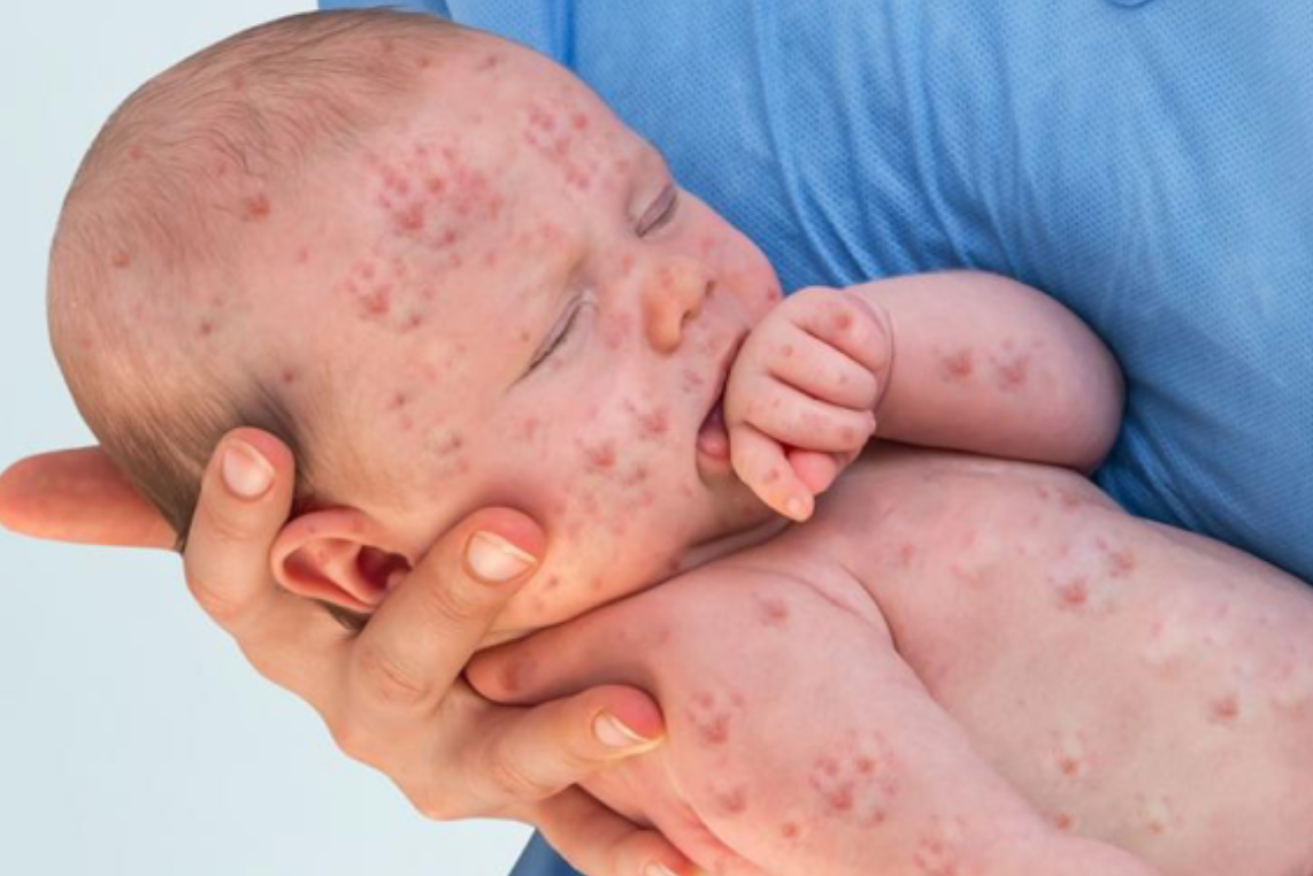How measles keeps on giving: The virus hobbles your immune system for years


Modern medicine has minimised the danger of measles, which was one a leading cause of deaths in young children. Photo: AAP
New evidence published on Thursday shows how catching measles cripples your immune system – leaving you vulnerable to a host of other pathogens.
It was thought that this period of suppressed immunity – where the antibodies you’d built up fighting previous infections are rendered ineffective – lasted two to three years. It could last as long as five.
Children are especially vulnerable.
With their shorter immune history, children not only have an increased risk of suffering secondary infections as the body struggles to fight off the measles virus, they also face an increased risk of disease and death from infections years down the track.
The history of childhood death is ghastly
According to an article published in May by the American Society for Microbiology, child mortality rates in the US, UK, and Denmark in the decades before and after the introduction of the measles vaccine “revealed that nearly half of all childhood deaths from infectious disease could be related to measles virus infection when the disease was prevalent”.

The complex measles infection cycle. Illustration: American Society for Microbiology
The society article describes how, when the measles virus enters the respiratory tract, it infects and hijacks alveolar macrophages in the lungs first.
The primary role of these specialised immune cells is to engulf and destroy foreign substances like dust, bacteria and viral particles.
Instead, the measles virus fuses with these immune cells and releases its genome and replication machinery directly into the cell cytoplasm.
“Instead of destroying the measles virus upon contact, hijacked macrophages transport viral copies straight to the closest lymph nodes for dissemination,” the authors write.
The new studies (here and here) describe how the measles infection eliminates protective antibodies in humans, leaving them more vulnerable to others infections – and how this operates at the cellular level, increasing the risk of subsequent (post-measles) infections.
Responses to the new studies from other researchers has been notably passionate.
Professor Nikolai Petrovsky from the College of Medicine and Public Health at Flinders University writes: “This study yet again dispels the dangerous myths perpetuated by homeopaths and other ‘natural’ healers who claim that exposure of infants to natural infection is important to ‘strengthen’ children’s immune systems.
“This terrible misinformation has been used to justify not just refusals of parents to vaccinate their children but even the shocking practice where parents have infection parties where children are deliberately exposed to other children with measles or other viral infections in order to deliberately infect them.”
- Related story: Deaths predicted in measles outbreak
Dr Helen Petousis-Harris, director of the Vaccine Datalink and Research Group at the University of Auckland, comments: “There is an old urban myth that having measles makes you stronger. It does not: It makes you weaker, something that has been known for over 100 years. In fact, an increase in overall death and a decrease in health after measles occurs for as long as five years after recovery.”
Professor Raina MacIntyre, head of the Biosecurity Research Program at the Kirby Institute from the University of New South Wales, makes the vital point: “At a time when measles is on the rise worldwide, with the UK and other European countries losing WHO elimination status for measles in August this year, the risk of measles is higher than it has been in a long time.
“It is critical that high levels of infant vaccination are maintained, and that travellers seek vaccination advice before they travel.”
Because the simple truth is this: A measles vaccination saves you all this grief.
Vaxxing proof on paper
Also published this week is a new report from the Australian Institute of Health and Welfare.
Some good news: Vaccine-preventable diseases fell by 31 per cent from 2005 to 2015 due to national immunisation programs.
The burden of vaccine preventable diseases in Australia “measures the combined impact of living with an illness or injury (non-fatal burden) or dying prematurely (fatal burden), focusing on the 17 diseases with vaccines in the National Immunisation Program (NIP) schedule in 2018.”
In the decade to 2015, large declines were seen in the burden of disease for:
- Rotavirus, down 85 per cent, added to the NIP schedule in 2007
- Chickenpox, down 75 per cent, added in 2005
- Human papillomavirus, down 67 per cent, added in 2007 for females and in 2013 for males
- Meningococcal disease, down 58 per cent, added in 2003.
Meanwhile, the deaths of two babies and one adult in Samoa are believed to be linked to a measles outbreak.
All pre-schools have been closed in an attempt to stop the virus spreading.
The outbreak is thought to have started in New Zealand.
The majority of cases have involved children younger than four years old.








